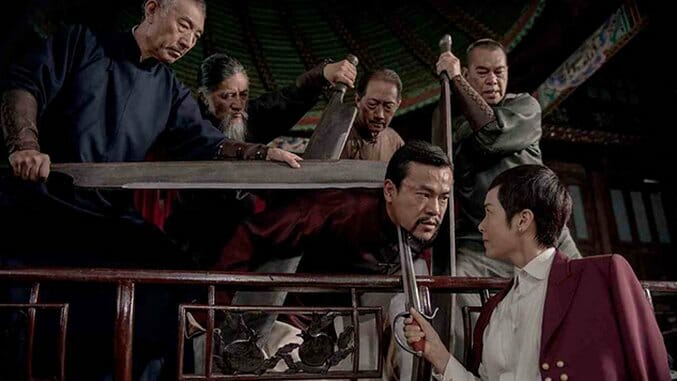The Final Master

For anyone looking for a kung-fu saga bereft of anything resembling passion, thrills or even high drama, look no further than The Final Master. Actually, if you’ve seen writer/director Xu Haofeng’s first feature, The Sword Identity (2011), you’ll already have an idea what you’re in for: an obsession with martial arts history and tradition, with the dramatic stakes made stubbornly low and the stylistic temperature even lower. Xu also co-wrote Wong Kar-Wai’s 2013 Ip Man biopic The Grandmaster, and watching his two directorial efforts, one can’t help but yearn for Wong’s romantically melancholic touch to do something, anything to add some of the heat that is crucially missing.
Though the plot details of The Final Master and The Sword Identity are different, the themes they tackle are broadly similar. Questions of legacy are chief among them, especially when it comes to passing down martial arts traditions. In The Sword Identity, the servant of a late general who created a new form of martial arts to fight off Japanese pirates spends much of the film trying to challenge the masters of the four already extant martial arts schools in Guangcheng in order to establish a new school to keep his master’s fighting techniques alive. The threat of extinction of another martial art—Wing Chun, the self-defense method at the heart of the recent Ip Man craze in Chinese cinema—hangs over The Final Master as well, as Master Chen (Liao Fan) similarly aims to figure out a way to pass down his art so that it doesn’t get lost to history. His efforts in Tianjin, the center of martial arts back in 1912, run up against the obstacles of political and military maneuvering as well as his own internal conflicts.
If those bare-bones summaries make the films sound rather dry and academic, don’t expect Xu to be so easily accommodating if you don’t already have an interest in martial arts going in. Considering Xu’s odd cinematic style in The Final Master—strangest of all, coupled with a score by An Wei that keeps even the most seemingly dramatic of scenes feeling inconsequential—one wonders if he is, on some deeper level, aware of how insular his thematic preoccupations really are. But damned if he wont’ at least try to open those concerns up to a wider audience.
-

-

-

-

-

-

-

-

-

-

-

-

-

-

-

-

-

-

-

-

-

-

-

-

-

-

-

-

-

-

-

-

-

-

-

-

-

-

-

-








































